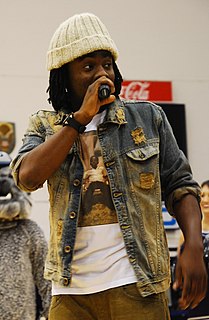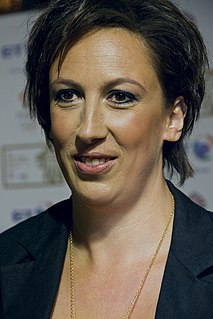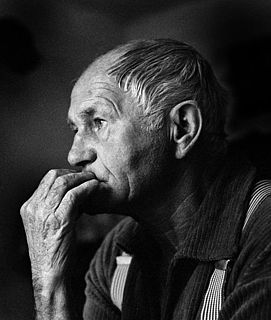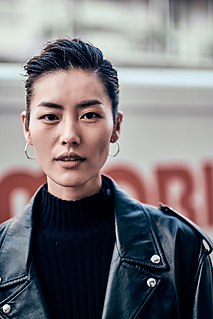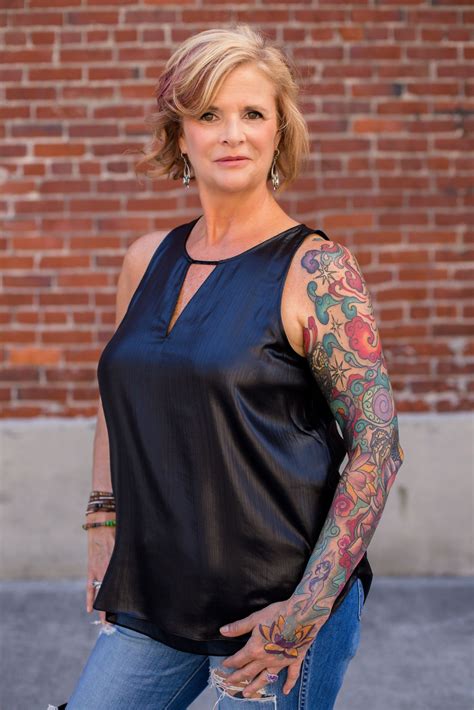A Quote by Diane von Furstenberg
The girls who were unanimously considered beautiful often rested on their beauty alone. I felt I had to do things, to be intelligent and develop a personality in order to be seen as attractive. By the time I realized maybe I wasn't plain and might even possibly be pretty, I had already trained myself to be a little more interesting and informed.
Related Quotes
I never felt pretty. I don't feel pretty now. I'm not a pretty person. I don't like pretty. So I don't feel badly. And I think it worked out well, because I found that all the girls I know who got by on their looks, as time went on and they faded, they were nothing. And they were very disappointed. When you're somebody like myself, in order to get around and be attractive, you have to develop something, you have to learn something, you have to do something. So you become a bit more interesting.
I dated all these girls and ended up not liking them and thought to myself, 'What was it that all of them had in common?' They had too much time on their hands. Even though they were pretty, they lacked something. A woman could be less attractive but with ambition and drive, that's the most beautiful thing.
I always loved twilight: it was the only time of day I had the feeling that something important could happen. All things were more beautiful bathed in twilight, all streets, all squares, and all the people walking through them; I even had the feeling that I was a handsome young man, and I liked looking at myself in the mirror, watching myself in the shop windows as I strode along, and even when I touched my face, I felt no wrinkles at my mouth or forehead.
Before I modeled, I never thought I was beautiful. Even right now, I don't think I'm beautiful. I think it's my personality that makes my beauty different and unique. If you look in the past, Chinese people have always considered things like big eyes, pointy nose, or big lips beautiful. I had the same thoughts as a child watching movies.
I wasn't always smart, I was actually very stupid in school [T]here was a boy who was very attractive who was even stupider than I was. And in order to ingratiate myself with this boy who was very beautiful, I began to do his homework for him – and that's how I became smart, I had to do all this work to just keep ahead of him a little bit, in order to help him. In a sense, all the rest of my life I've been trying to do intellectual things that would attract beautiful boys.
One of the best records I’ve ever heard. Seriously, maybe top 20 all-time… I think if Rich Mullins had been given more time here, and if God had blessed his life with love and a wife, if he had the chance to see as much of the relational beauty as he saw of the natural beauty, I think he might have written some songs like the ones we find on BiRDS OF RELOCATiON. And you know that’s about the highest praise I can give someone. You will not find a combination of more beautiful poetry, raw honesty, and gorgeous melodies for a long time.
I found a Bill Evans record in the bookcase and was listening to it while drying my hair when I realized that it was the record I had played in Naoko's room on the night of her birthday, the night she cried and I took her in my arms. That had happened only six months earlier, but it felt like something from a much remoter past. Maybe it felt that way because I had thought about it so often-too often, to the point where it had distorted my sense of time.
Blomkvist had indeed had many brief relationships. He knew he was reasonably good-looking, but he had never considered himself exceptionally attractive. But he had often been told that he had something that made women interested in him . . .that he radiated self-confidence and security at the same time, that he had the ability to make women feel at ease. Going to bed with him was not threatening or complicated, but it might be erotically enjoyable. And that, according to Blomkvist, was as it should be.
There were a lot of pretty women in cinema around Audrey Hepburn's time, but she stood out because she had a very interesting personality - which went beyond her looks. She did so much for women, for animal rights, for children's education - it's always the personality that comes through and makes one seem beautiful.
The twentieth century saw an amazing development of scholarship and criticism in the humanities, carried out by people who were more intelligent, better trained, had more languages, had a better sense of proportion, and were infinitely more accurate scholars and competent professional men than I. I had genius. No one else in the field known to me had quite that.
I had seen faces in photographs I might have found beautiful had I known even vaguely in what beauty was supposed to consist. And my father's face, on his death-bolster, had seemed to hint at some form of aesthetics relevant to man. But the faces of the living, all grimace and flush, can they be described as objects?


